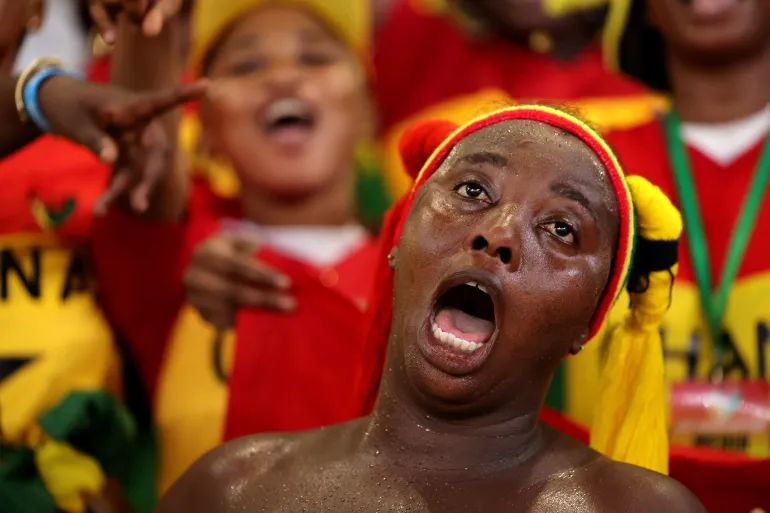A GNA Feature by Simon Asare
Abidjan, (Côte d’Ivoire), Jan. 16, GNA – The Black Stars of Ghana are staring at a back-to-back group stage exit for the first time at the African Cup of Nations (AFCON), an unwanted record in the annals of Ghanaian football.
The recent woes of the Black Stars have reached depressive levels, with countries like Comoros, Cape Verde, and Namibia rubbing shoulders with one of Africa’s football powerhouses.
The downward performance of the Black Stars continues to pierce a sharp dagger in the hearts of Ghanaian football fans, leaving many uninterested in football, described as the passion of the nation.
This was evident in the recent defeat to Cape Verde, where Ghanaian football fans were left restless with sports journalists’ livid about the performance of the Black Stars.
The fear factor of the Black Stars being a powerhouse in recent times is certainly non-existent, and the following factors further dissect why this has become so.
Technical
Most often, coaches have been blamed for the recent lack of performance, with Black Stars changing over six coaches in the past decade.
The likes of Milovan Rajevac, Otto Addo, C.K. Akunnor, Goran Stevanovic, and Kwasi Appiah have all come up with different strategies in their quest to change the misfortunes of the Black Stars.
Some strategies yielded some positive results, with Ghana coming close to winning the AFCON and qualifying for the FIFA World Cup, while others turned out to be disastrous.
But Chris Hughton’s Black Stars have become a painful side to watch, with players struggling to string a few passes together while the pressing and zeal to fight for the nation have been questionable.
The recent Cape Verde clash was a clear indication of how Ghana had no visible style of play, and the Black Stars have relied on individual brilliance to win or draw recent past matches.
Ghanaian sports journalist Saddick Adams, popularly known as ‘Sports Obama’, said in an interview with GNA Sports that the non-performance of the Black Stars is not solely a coaching problem.
“Nothing has worked after we have changed more than six coaches in the past decade, both foreign and indigenous. We just need to have a football structure where the coaches can come and complement our football plan.

“The coach should not come in and overhaul the national team, and we have to have a system in place, and this is evident with what the likes of Senegal and Algeria are doing,” Saddick Adams said.
He noted that Ghanaian football needed a long-term plan to be able to end the 42-year trophy drought, unless we are just participants if there is no plan.
“You cannot win a football tournament when you don’t have a plan. You can win games, but winning a tournament requires a plan, something that we have lacked.
“A typical example is the line-up against Cape Verde; almost 90 per cent have not played together at a tournament, and you can’t win a tournament by putting together a crop of players you think are just good. We can’t win the tournament if we don’t have a plan.”
Lack of talent
Ghana can boast of the best football talents on the African continent, but these talented football talents have failed to shine at the national level.
Solomon Kalou, an Ivorian football legend, in an interview with GNA Sports at the Mixed Zone session at the Stade Félix-Houphouët-Boigny in Abidjan, said that Ghana had some of the best football talent and that with time they could deliver the AFCON title.
“Ghana is a great football nation, and I think they should be at the top of African football with the crop of talents they have. I think they are getting close to winning the AFCON,” he said.
Hard Luck
The unity in the team a decade ago brought us so close to winning the trophy under the leadership of Stephen Appiah, Asamoah Gyan, and John Mensah.
From 2008–2017, the Black Stars have reached at least the semi-finals but have lost twice in the finals during this time to Ivory Coast and Egypt.
“They have been to the finals a number of times and have narrowly lost it, and these are things you can’t control, so I wish them well in these tournaments and future tournaments,” Solomon Kalou asserted.
The issue of unity in camp was also reiterated by Ghana’s goalkeeper, Richard Ofori, after the Black Stars defeat to Cape Verde.
“Sometimes you don’t get what you want in the game, and there are two sides to the game. You miss your chances, and the opponents take theirs.
“We just need to focus on the second game, and now there is nothing we can do about the first game. We must stay united, and this is the critical time we need Ghanaians,” he said.
In conclusion, finding solutions to our current woes would become key to ending the 42-year AFCON trophy drought, or perhaps we could extend this undesirable record to a century where that generation would still be facing similar problems.
GNA